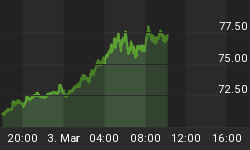Some readers want to know if there is a conflict in the Austrian school regarding the course of unemployment once real factors begin to signal the beginning of a recession. One reader did a little homework and found an apparent contradiction between Hayek and Rothbard on the question of unemployment. Hayek believed that once the business cycle entered its final phase and consumer goods started to rise relatively faster than producer goods involuntary unemployment in the producer goods industries would emerge.
On the other hand, Rothbard, who had considerable respect for Hayek, argued that this was not necessarily so. So who was right? Moreover, does it affect our views on what happened to the Clinton economy? These are very important questions that mainstream economics completely overlooks. What Hayek argued is basically what every Austrian has been arguing for years. When the banks cease lending consumer demand will continue to rise for a time even though spending on producer goods falls.
The relative increase in the demand for consumer goods results in their price spreads exceeding those in the higher stages, which should be narrowing anyway. This means that the prices of non-specific factors will tend to rise as they are bid away by firms close to the point of consumption, which in turn will aggravate the downward pressure on price margins in the higher stages of production.
The relative rise in factors prices in the higher stages will render the longer processes unprofitable. Now any economist will realise from this line of reasoning that specific factors will be hit the hardest by this process, meaning that excess capacity will start emerging (some might say that factory utilisation is falling), and that the prices of these factors will start to fall, at least in relative terms. Eventually, the accumulative fall (relative or absolute) in the prices of intermediate goods will bring about a severe contraction in the higher stages of production.
Hayek concluded that many workers who were employed in the higher stages of production will be unable to find immediate employment in the shorter stages (those close to the point of consumption) despite the fact that these stages will have expanded their demand for labour. Rothbard's response was brief and pointed. Although he accepted Hayek's reasoning he argued that the transition period during which the economy moves from longer production processes to shorter processes shouldn't necessarily mean that significant unemployment will emerge. So long as the redundant workers are prepared to work at any wage rates that are offered unemployment would not be a problem.
Now all of this has a direct bearing on what happened in the American economy in the last couple of years of the Clinton presidency. But before we leave the realm of economic theory we should note that the question of unemployment as Hayek and Rothbard deal with it hinges on time and flexibility. If workers are prepared to accept lower wage rates then not only will a higher rates of unemployment be averted but unemployment could continue to fall. On the other hand, if the slowdown is very quick then it might take some time to absorb the unemployed workers into other lines of production.
Now in his discussion Hayek did say that there could be "a fairly sudden stoppage of work". (Prices and Production, Augustus M. Kelley Publishers, 1967. There is also Hayek's Pure Theory of Capital, The University of Chicago Press, 1975). In that case he would, I believe, be right about the unemployment effects. But he was discussing a situation where monetary expansion had completely ceased. Were the contraction to occur more slowly then the resulting unemployed would be more easily absorbed into shorter stages of production, whether they were complete or not, assuming a fair degree of wage flexibility existed.
This would explain why America's unemployment rate has remained fairly stable even though manufacturing employment has fallen. Therefore I'm inclined to go with Rothbard on this one. In any case, I think Hayek tacitly conceded this point in his paper (Profits, Interest and Investment, Augustus M. Kelley Publishers, 1975). What certainly needs to be stressed is that there is no significant difference between Hayek and Rothbard on the nature of the business cycle and what needs to be done.
















